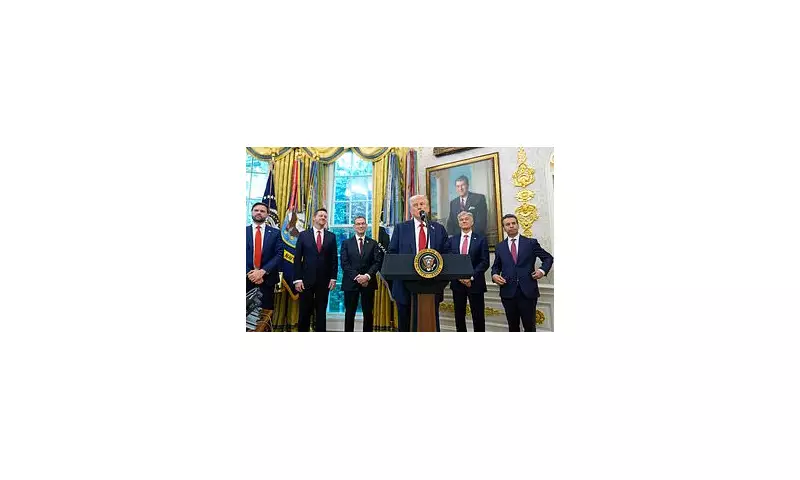
In what could signal the most significant shake-up of global pharmaceutical markets in decades, former President Donald Trump is preparing an aggressive overhaul of drug pricing policies that would directly target industry giants like Pfizer.
The American Prescription Revolution
Sources close to the Trump campaign have revealed detailed plans to fundamentally restructure how prescription medications are priced and sold in the United States. This radical approach, dubbed 'Trump Rx', would leverage American purchasing power to force dramatic price reductions from pharmaceutical manufacturers.
The implications for Britain's NHS could be profound. As one of the world's largest drug purchasers, changes to American pricing strategies typically create ripple effects across global markets, potentially affecting everything from cancer treatments to routine medications.
Pfizer in the Crosshairs
Multiple industry insiders confirm that Pfizer has emerged as a primary target in Trump's proposed reforms. The pharmaceutical behemoth, which played a pivotal role in COVID-19 vaccine development, now faces potential government measures that could significantly impact its revenue model.
'This isn't just about negotiation - it's about restructuring the entire relationship between government and pharmaceutical manufacturers,' explained a healthcare policy analyst who requested anonymity.
Global Implications for Healthcare
The proposed American reforms come as the NHS itself grapples with rising drug costs and budget constraints. Britain's health service could potentially benefit from any downward pressure on global drug prices, though the exact impact remains uncertain.
Healthcare economists suggest that successful implementation of Trump's pricing strategy might:
- Create new benchmarks for international drug pricing
- Force pharmaceutical companies to reassess global pricing structures
- Provide leverage for other national health services in negotiations
- Accelerate the development of generic alternatives
The Political Battle Ahead
Pharmaceutical industry representatives have already begun mobilising opposition to the proposed measures, warning that aggressive pricing controls could stifle innovation and delay new treatments reaching patients.
Meanwhile, patient advocacy groups appear divided, with some welcoming potential cost reductions while others express concern about long-term research and development funding.
'The pharmaceutical industry is watching these developments with considerable apprehension,' noted a London-based healthcare investment analyst. 'When the world's largest drug market talks about fundamental change, everyone pays attention.'
As the American political landscape evolves, health services worldwide - including the NHS - await the outcome of what could become the most significant transformation of pharmaceutical economics in a generation.





